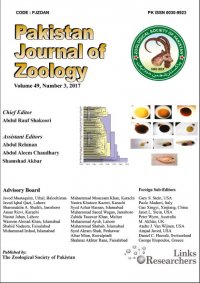Antimicrobial and Antioxidative Effects of Honey Marination on Beef Meat
Antimicrobial and Antioxidative Effects of Honey Marination on Beef Meat
Mansoor Ayoob1, Atta Hussain Shah1, Zaheer Ahmed Nizamani2, Muhammad Faisal Ayoob2,3*, Deepesh Kumar Bhuptani1,5 and Abdul Sattar Baloch4
ABSTRACT
The study was conducted to investigate the antimicrobial and antioxidant effects of honey marination on beef meat (M. longissimus dorsi). The samples were analyzed for moisture, fat, protein, glycogen, peroxide, thiobarbituric acid, total viable count and total coliform count after marination with 0, 10, 20, 30 and 100% concentrations of honey and after 1, 4, 8 and 12 days of storage (4 ̊C). The moisture, fat and protein contents were moderately decreased on the 4, 8 and 12th days of storage in all the groups. The glycogen content showed a significant (P < 0.05) increase among the groups except for the control. Whereas peroxide and thiobarbituric acid values significantly (P < 0.05) decreased in all the groups, excluding control, which showed an increase. Moreover, the total viable and total coliform counts were markedly decreased at the 4, 8 and 12th days of storage in all the groups, except in group A. It concludes that the honey served as a natural preservative to reduce the lipid oxidation and microbial numbers due to its antimicrobial and antioxidative attributes. Hence, it prolongs the shelf life of beef meat without having any adverse effects on its quality.
To share on other social networks, click on any share button. What are these?










